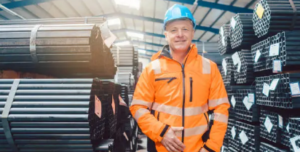Steel Supplies Adelaide: Exploring the Dynamics of Steel Supplies
Steel, which is frequently referred to as the most important component of contemporary civilization, is an essential material that is utilized in a wide variety of industries, including building, manufacturing, infrastructure, and many others. Not only is it essential for individuals who are directly involved in the steel sector to have a thorough understanding of the complexities of steel supplies Adelaide, but it is also essential for anybody who has a stake in the growth of the global economy. The multidimensional world of steel supplies is explored in this article, which also examines the significance of the industry, the issues it faces, and the changing environment of the stainless steel market.
The Significance of Steel Supplies:
 Foundation of Infrastructure:
Foundation of Infrastructure:
- Steel serves as the primary building material for infrastructure projects worldwide, including bridges, skyscrapers, railways, and highways.
- The quality, availability, and cost-effectiveness of steel supplies directly impact the feasibility and success of large-scale construction endeavours, shaping the landscape of modern cities and transportation networks.
Driving Industrial Innovation:
- In manufacturing, steel is indispensable for producing machinery, vehicles, appliances, and a myriad of consumer goods.
- The versatility, strength, and malleability of steel make it an ideal material for engineering innovative solutions across various industries, from automotive manufacturing to aerospace technology.
Global Economic Implications:
- The health of the steel industry serves as a barometer for the broader economy, with fluctuations in steel prices and demand for steel supplies Adelaide, reflecting shifts in manufacturing output, construction activity, and trade patterns.
- Steel supplies play a crucial role in global trade dynamics, with major steel-producing nations influencing international markets and trade policies.
Challenges in Steel Supplies:
Raw Material Dependency:
- The steel-making process relies on essential raw materials such as iron ore, coal, and scrap metal, whose availability and cost fluctuate based on factors such as mining output, transportation logistics, and geopolitical tensions.
- Dependency on specific regions for raw material supply can expose steel producers to supply chain disruptions and price volatility.
Market Volatility:
- Steel prices are highly susceptible to market fluctuations driven by factors including economic conditions, geopolitical events, trade policies, and currency exchange rates.
- Rapid changes in steel prices pose challenges for manufacturers, distributors, and consumers, impacting production costs, profit margins, and investment decisions.
Trade Dynamics and Protectionism:
- Global steel trade is influenced by trade agreements, tariffs, and anti-dumping measures imposed by governments to protect domestic industries.
- Trade tensions between major steel-producing nations can lead to trade disputes and retaliatory measures, disrupting supply chains and creating uncertainty for businesses.
Environmental and Regulatory Pressures:
- The steel industry faces increasing scrutiny and regulatory pressure to reduce its environmental footprint, minimize emissions, and adopt sustainable practices.
- Compliance with environmental regulations, energy efficiency standards, and emissions targets adds complexity and cost to steel production, driving the need for innovation and investment in cleaner technologies.
The Evolving Landscape of Steel Supplies:
Technological Innovations:
- Advancements in steel-making technologies, such as electric arc furnaces (EAFs), continuous casting processes, and recycling techniques, are improving efficiency, reducing energy consumption, and lowering environmental impact.
- Digitalization and automation are transforming steel production processes, enhancing productivity, quality control, and supply chain management.
Sustainability Initiatives:
- The steel industry is increasingly focused on sustainability initiatives, including carbon reduction strategies, resource conservation, and circular economy principles.
- Investments in renewable energy, carbon capture and storage (CCS) technologies, and alternative raw materials are driving the transition towards more sustainable steel production methods.
Supply Chain Optimization:
- Steel producers and distributors are adopting advanced supply chain management practices, leveraging data analytics, predictive modelling, and logistics optimization tools to enhance efficiency, reduce lead times, and minimize inventory costs.
- Collaborative partnerships and supply chain integration efforts are improving coordination and visibility across the entire steel value chain, from raw material sourcing to end-user delivery.
Undeniably, steel supplies Adelaide form the backbone of modern industry, underpinning infrastructure development, industrial innovation, and economic growth worldwide. While the steel industry faces various challenges, from raw material dependencies to market volatility and regulatory pressures, it also presents opportunities for innovation, sustainability, and supply chain optimization. By embracing technological advancements, adopting sustainable practices, and fostering collaboration, stakeholders across the steel supply chain can navigate challenges and capitalize on opportunities to shape a resilient and sustainable future for the industry.
